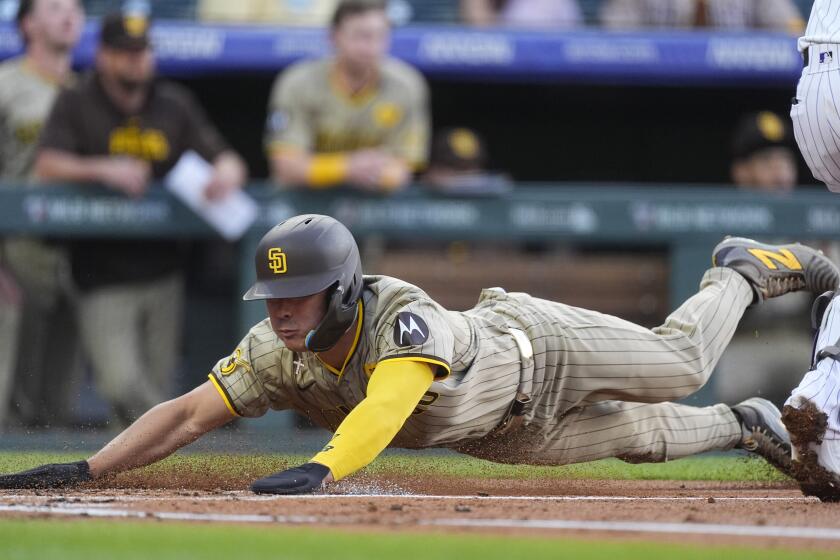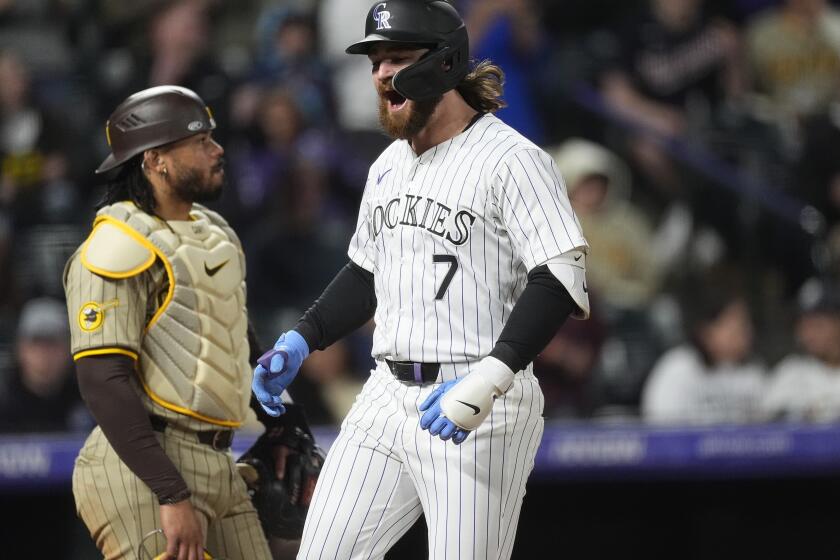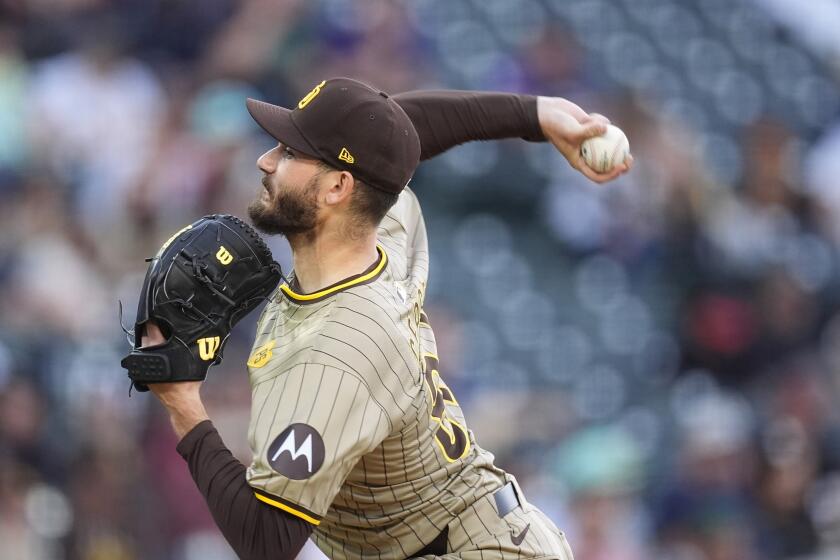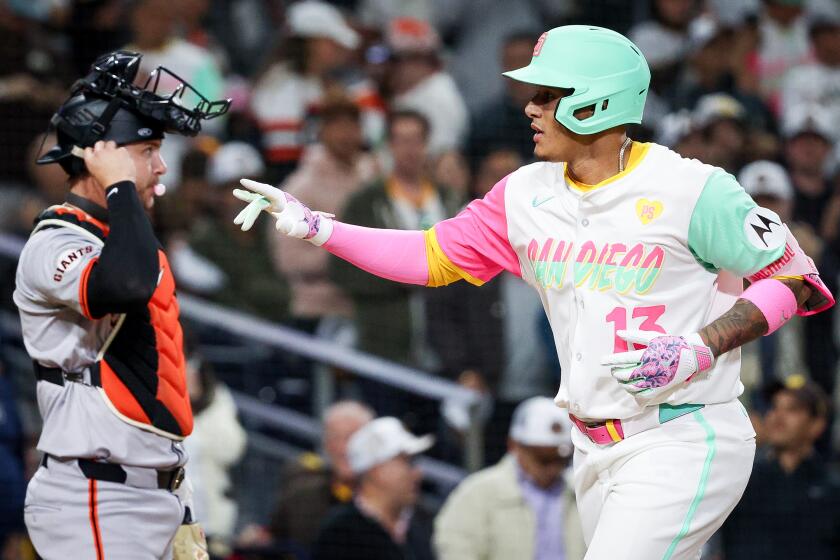Mike McCoy directing awful Chargers reruns
If Mike McCoy was fired today, the Chargers would have come perfectly full circle under his leadership.
They lost a 21-point third-quarter lead in his 2013 debut as the team’s head coach, too.
Sunday’s defeat was worse.
The 33-26 overtime loss to the Kansas City Chiefs continued a pattern. It came without the offense committing a turnover. It felt inevitable. It probably portends more of the same.
“We didn’t play well enough to put them away,” McCoy said afterward. “That starts with me.”
Indeed. There is no way around that.
Even if you don’t blame the head coach for the unsuccessful 54-yard field goal try on fourth-and-two from the Chiefs’ 36-yard line in the fourth quarter – confirming that while McCoy has made strides in many areas his gut remains as timid as ever in his fourth season – he simply hasn’t effected a winning culture.
Quite the opposite, actually.
McCoy was brought back after last season’s 4-12 record, a second straight season without making the playoffs, because his bosses believed he deserved more time to finish what he started. The Chargers made the playoffs in his first season, missed the postseason by one game in 2014 and last year suffered a spiral that included nine defeats by one score.
Close, sure. But evidently so far.
RELATED
Because after they looked like an entirely different team for more than 2½ quarters on Sunday, during which they built a 24-3 lead, the Chargers put on what was essentially an encore performance. Granted, none of their 2015 losses involved choking on a three-touchdown lead. But the principles involved were the same.
“We didn’t execute well there when we were up,” McCoy said. “And those are opportunities that we have to put games away and finish. … We have the opportunity to put these teams away, we have to play better, and we didn’t get it done. We didn’t finish. It’s as simple as that.”
Right. That’s a theme.
Credit to the Chiefs, absolutely. But coming back from 21 points down with 21 minutes remaining is more asphyxiation by the losers than respiration by the victors.
The Chiefs’ largest-ever second-half comeback would have been astonishing. Except it came against the Chargers. This was the fifth time in 13 games the Chargers lost after leading in the fourth quarter.
It got to the point Sunday – around the time of that missed field goal, which was followed by a quick Chiefs touchdown and even quicker Chargers punt – that the result felt unavoidable.
But all of this can’t be put on McCoy.
Defensive coordinator John Pagano took his foot off the pedal in the second half. There were no more than a handful of blitzes in the final two quarters, as the Chargers seemed content to let the game bleed out.
Problem was, the Chiefs didn’t lay down and die. After scoring three points and gaining 101 yards (on 27 plays) over their first six possessions, they scored 30 and went amok for 312 yards (on 42 plays) over their final six possessions. Their 10-play, 70-yard drive in overtime had all the suspense of an episode of “MacGyver.” You knew they’d figure out how to get in the end zone, you just didn’t know how. In the end, Kansas City quarterback Alex Smith checked into a keeper for the game-winning two-yard TD run because he spied a defensive look he’d seen “all day, a lot” and knew the play would work.
And while the gas was siphoned from the Chargers offense when Keenan Allen went down with an apparent season-ending ACL tear late in the first half, there was also a striking difference in the many of the run plays that were called in the second half.
Melvin Gordon scored the first two touchdowns of his career and gained 39 yards on eight carries in the first half. He had another three for 12 yards in the third quarter and three more for six yards in the fourth. Danny Woodhead was in the rest of the time. After letting Gordon run downhill, getting his powerful legs churning, allow his confidence to grow, the Chargers reverted mostly to the shotgun draw that didn’t work last season.
Ken Whisenhunt was brought back as offensive coordinator because of the capability he showed – that Frank Reich did not – to adjust when things went wrong. With Allen out, he will have to do again what he did in 2013, from week to week deftly manipulating an offense beset by injuries on the offensive line.
McCoy’s job hinges on the results in the weeks ahead, likely the totality of those remaining in the season. The Spanos family generally waits for later rather than sooner when making a move on a head coach.
But in this crucial year for the franchise, they might reconsider. Because, at this point, the only vote that would get two-third approval was one asking whether McCoy should be fired.
The results could change. But there is little reason to think they will.






